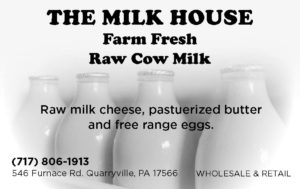
The Milk House
Farm Fresh Raw Cow Milk Raw milk cheese Pasteurized butter Free range eggs
The dairy industry in Southeastern PA is remarkably diverse. From small herds milked in stanchion barns to large herds of several thousand that are milked in automated milking parlors. It is not unusual for Amish dairymen to use a diesel generator to run the milking machine, while their English neighbor’s cows are milked with a robot. It is from these smaller herds that the dairy products below come from.
Check out this quick but amazing creation that uses just three ingredients: Soft Pretzel Mix from Haldeman Mills, Camembert Cheese (check out farms below offering cheese), and Triple Berry Jam from Barbara’s Home Canning.

Farm Fresh Raw Cow Milk Raw milk cheese Pasteurized butter Free range eggs
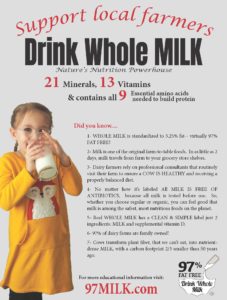
Support local farmers – Drink whole milk 21 Minerals, 13 Vitamins, contains all 9 essential amino acids needed to build protein Whole milk is standardized
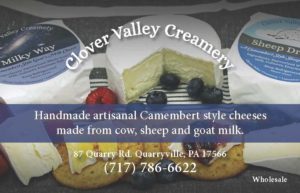
Handmade artisanal Camembert style cheeses made from cow, sheep and goat milk.
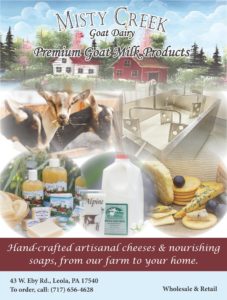
Premium Goat Milk Products Hand-crafted artisanal cheeses & nourishing soaps, from our farm to your home.
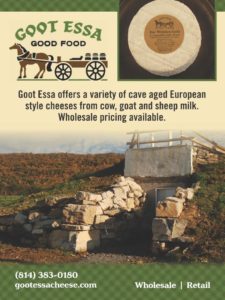
Goot Essa offers a variety of cave-aged European style cheeses from cow, goat and sheep milk. Wholesale pricing available.
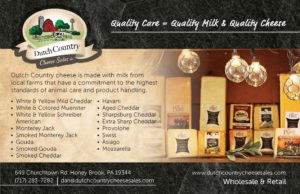
Quality Care = Quality Milk & Quality Cheese Dutch Country cheese is made with milk from local farms that have a commitment to the highest
A2-A2 milk refers to milk that only contains one type of protein: A2 beta-casein. Most milk that you purchase in a store contains both the A1 and A2 beta-casein, but research studies have shown evidence that our bodies may digest the two types of protein differently.
The homogenization process involves reducing the size of the fat globules (the cream that rises to the top of the glass or bottle) into minuscule portions that are dispersed evenly throughout the milk.
Whole milk is only about 3.5% fat. The reason it is called “whole milk” has less to do with it’s fat content than the fact that it is comparatively unadulterated.
Pasteurized milk is raw milk that has been heated to a specified temperature and time to kill pathogens that may be found in raw milk.
Milk that has not been pasteurized. Raw milk advocates contend that it is a complete, natural food containing more amino acids, antimicrobials, vitamins, minerals, and fatty acids than pasteurized milk. They also claim that it is a better choice for those with lactose intolerance, asthma, autoimmune and allergies.